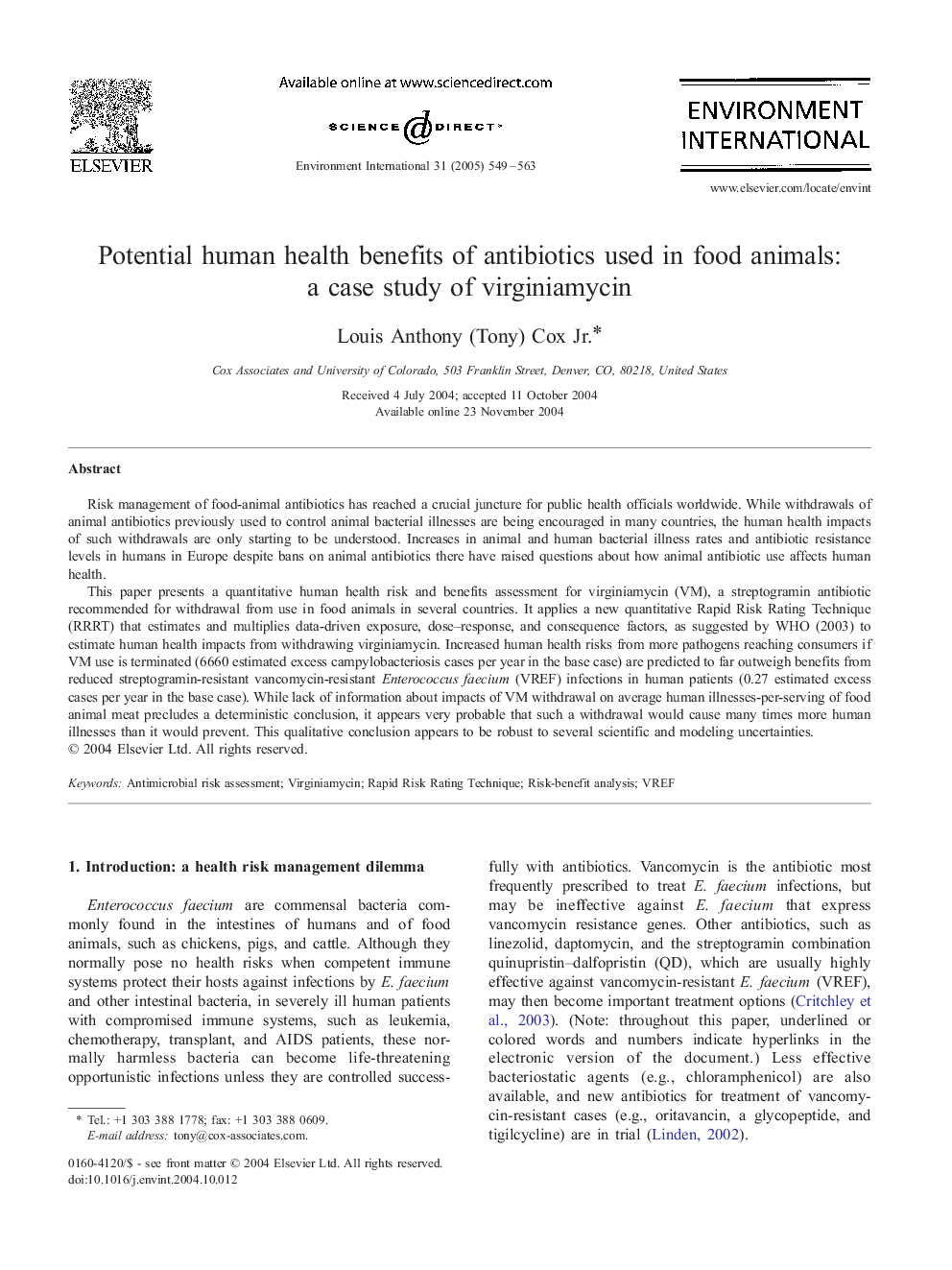| Article ID | Journal | Published Year | Pages | File Type |
|---|---|---|---|---|
| 9455730 | Environment International | 2005 | 15 Pages |
Abstract
This paper presents a quantitative human health risk and benefits assessment for virginiamycin (VM), a streptogramin antibiotic recommended for withdrawal from use in food animals in several countries. It applies a new quantitative Rapid Risk Rating Technique (RRRT) that estimates and multiplies data-driven exposure, dose-response, and consequence factors, as suggested by WHO (2003) to estimate human health impacts from withdrawing virginiamycin. Increased human health risks from more pathogens reaching consumers if VM use is terminated (6660 estimated excess campylobacteriosis cases per year in the base case) are predicted to far outweigh benefits from reduced streptogramin-resistant vancomycin-resistant Enterococcus faecium (VREF) infections in human patients (0.27 estimated excess cases per year in the base case). While lack of information about impacts of VM withdrawal on average human illnesses-per-serving of food animal meat precludes a deterministic conclusion, it appears very probable that such a withdrawal would cause many times more human illnesses than it would prevent. This qualitative conclusion appears to be robust to several scientific and modeling uncertainties.
Related Topics
Life Sciences
Environmental Science
Environmental Chemistry
Authors
Louis Anthony (Tony) Jr.,
